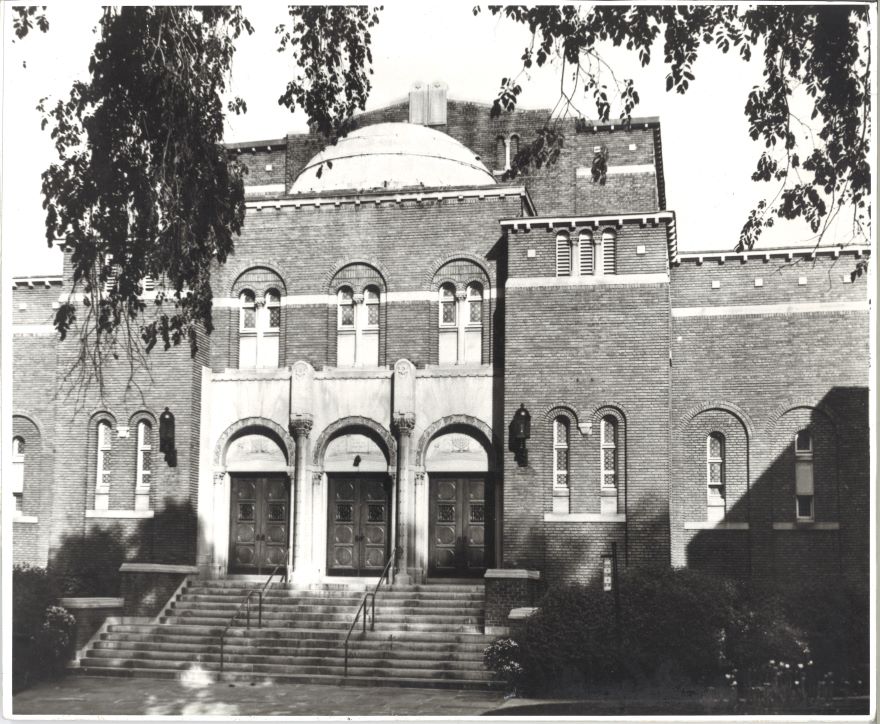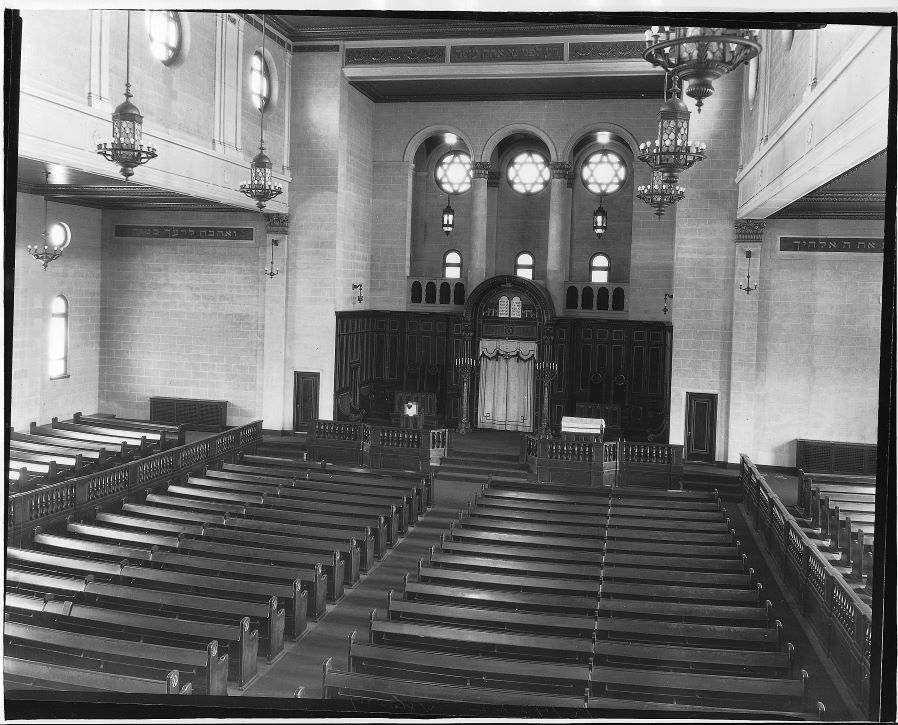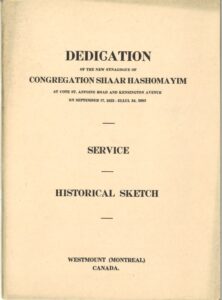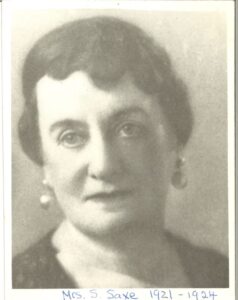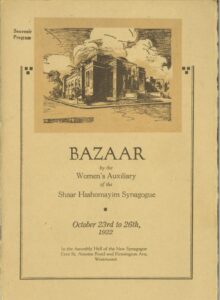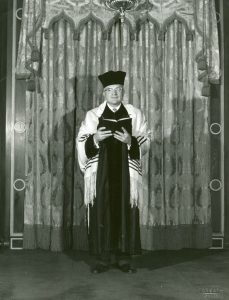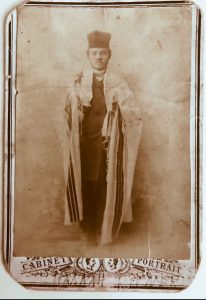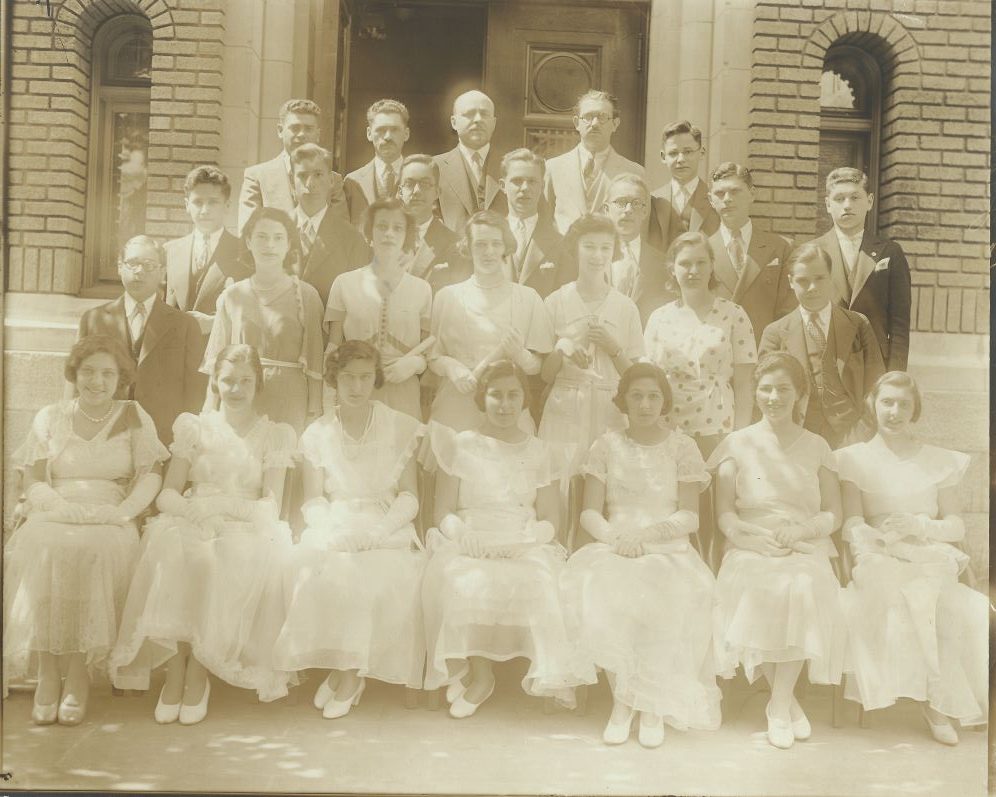Part 4: The Move to Westmount, the 1920s-30s
The new building was officially dedicated on September 17, 1922.
The dedication service, which was attended by over 1,500 people, included a procession to carry the Torah scrolls from the old building on McGill College to the new one in Westmount. There, the elders of the synagogue handed the scrolls to younger congregants to be placed in the Torah ark. The ceremony concluded with the singing of Hatikvah and God Save the King.
A souvenir booklet was compiled to mark the occasion. It included a complete historical sketch of the Congregation from its founding until then, written by Ben Bernstein.
Though the Congregation had officially moved, the settling-in process was far from over: the newly completed building almost totally unfurnished. To remedy this situation, the Women’s Auxiliary, founded in 1921, organized a bazaar under the leadership of its first president, Annie Saxe. This endeavour successfully raised over $23,000, all of which was allocated for the purchase of synagogue furnishings.
As the Congregation settled into its new neighbourhood, it quickly developed a close relationship with the Westmount community. For instance, in the mid-1920s, when Westmount’s Victoria Hall burned down, the Shaar gave the city use of its facilities until a new building could be built.
The synagogue moreover drew many notable visitors from across the Jewish world, including the first Chief Rabbi of Palestine—Abraham Isaac Kook—who visited the synagogue in 1924.
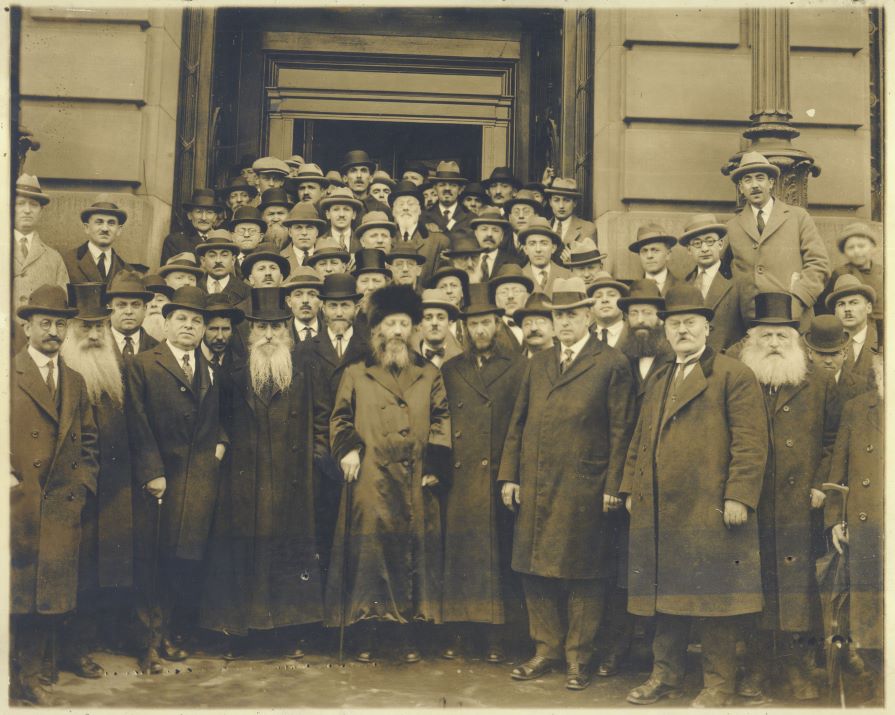
Rav Abraham Isaac Kook (front row, centre) visited Montreal in 1924 as part of a fundraising campaign for institutions of Torah Learning in both Palestine and Europe. Standing just two from his left is then Shaar president, Lyon Cohen.
Lyon Cohen remained synagogue president all through the decade. For several years his ailing health prevented him from attending Annual General Meetings, yet the Congregation continued to renew his presidential term unanimously. He was finally relieved of the presidency in 1932. He passed away five years later.
In 1937, the synagogue’s cantor, J. Segal, retired after twenty years of service, leading to a search for a replacement. The following year, Cantor Nathan Mendelson was hired. Mendelson would go on to usher in an era of musical innovation at Shaar Hashomayim.
The 1920s and 30s also saw an explosion of youth activity in the synagogue. Enrolment in the synagogue’s Hebrew school steadily increased. New educational programs were instituted for teenagers, a Junior Congregation program was founded, and the Congregation’s Boy Scouts, Wolf Cubs, Girl Guides, and Brownies troops were established.


